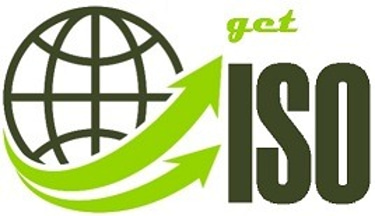The Importance of ISO/IEC 17025 Lab Accreditation
ISO17025
4/11/20243 min read


The Importance of ISO/IEC 17025 Lab Accreditation
Welcome to our latest video where we delve into the significant realm of ISO/IEC 17025 lab accreditation, uncovering its immense potential and benefits for laboratories worldwide. ISO/IEC 17025 is the international standard for testing and calibration laboratories, providing a framework for quality and competence.
What is ISO/IEC 17025 Accreditation?
ISO/IEC 17025 accreditation is a globally recognized certification that demonstrates a laboratory's competence to carry out specific tests and calibrations. It ensures that laboratories meet the highest standards of quality and accuracy in their operations. Accreditation is granted by independent accreditation bodies that assess the laboratory's technical competence, quality management system, and adherence to ISO/IEC 17025 requirements.
The Benefits of ISO/IEC 17025 Accreditation
ISO/IEC 17025 accreditation offers numerous benefits for laboratories, enabling them to enhance their operations and reputation. Let's explore some of the key advantages:
1. Enhanced Credibility
ISO/IEC 17025 accreditation provides laboratories with a mark of credibility and reliability. It assures customers, stakeholders, and regulatory authorities that the laboratory operates with the highest level of competence and integrity. Accreditation demonstrates that the laboratory follows internationally recognized standards and best practices, ensuring accurate and reliable test results.
2. Improved Quality and Competence
The accreditation process involves a rigorous assessment of the laboratory's technical competence and quality management system. By meeting the stringent requirements of ISO/IEC 17025, laboratories are compelled to continuously improve their processes, equipment, and personnel competence. This leads to enhanced quality control, increased accuracy, and improved overall performance.
3. Global Recognition
ISO/IEC 17025 accreditation is recognized and accepted globally. This recognition allows accredited laboratories to gain a competitive edge in the international market. It facilitates acceptance of test results and calibrations across borders, enabling laboratories to expand their services and reach a wider customer base.
4. Compliance with Regulatory Requirements
Many industries and regulatory authorities require laboratories to hold ISO/IEC 17025 accreditation for specific testing and calibration activities. By obtaining accreditation, laboratories ensure compliance with regulatory requirements, avoiding potential legal and financial consequences. Accreditation also helps laboratories stay up-to-date with the latest industry standards and regulations.
5. Increased Customer Confidence
ISO/IEC 17025 accreditation instills confidence in customers, assuring them that the laboratory's test results and calibrations are accurate and reliable. Customers can rely on accredited laboratories to provide consistent and trustworthy services. This increased confidence leads to stronger customer relationships, repeat business, and positive word-of-mouth referrals.
6. Continuous Improvement
ISO/IEC 17025 accreditation promotes a culture of continuous improvement within laboratories. The accreditation process encourages laboratories to review and optimize their processes, identify areas for improvement, and implement corrective actions. This commitment to continuous improvement ensures that laboratories stay at the forefront of technological advancements and industry best practices.
The Process of ISO/IEC 17025 Accreditation
The process of obtaining ISO/IEC 17025 accreditation involves several key steps:
1. Documentation and Implementation of a Quality Management System
Laboratories seeking accreditation must establish and document a comprehensive quality management system (QMS) that complies with the requirements of ISO/IEC 17025. This includes defining policies, procedures, and processes for all laboratory activities, ensuring traceability, and maintaining records.
2. Pre-Assessment
Prior to the formal assessment, laboratories may opt for a pre-assessment or gap analysis to identify areas that need improvement. This allows laboratories to address any non-conformities and make necessary adjustments to meet the accreditation requirements.
3. Formal Assessment
The formal assessment is conducted by an independent accreditation body. It involves a thorough evaluation of the laboratory's technical competence, quality management system, and adherence to ISO/IEC 17025 requirements. The assessment may include document reviews, on-site inspections, proficiency testing, and personnel interviews.
4. Corrective Actions and Follow-Up Assessments
If any non-conformities are identified during the assessment, the laboratory must implement corrective actions to address the issues. Follow-up assessments may be conducted to verify the effectiveness of the corrective actions taken.
5. Accreditation Decision
Based on the assessment findings, the accreditation body makes a decision regarding the laboratory's accreditation status. If the laboratory meets all the requirements, accreditation is granted, and the laboratory receives an accreditation certificate.
Conclusion
ISO/IEC 17025 lab accreditation is of paramount importance for laboratories aiming to excel in their operations and gain a competitive edge. It provides a framework for quality and competence, enhancing credibility, improving quality and competence, and ensuring compliance with regulatory requirements. Accreditation offers global recognition, increased customer confidence, and fosters a culture of continuous improvement. By obtaining ISO/IEC 17025 accreditation, laboratories can demonstrate their commitment to delivering accurate and reliable test results, thereby establishing themselves as leaders in their respective fields.
